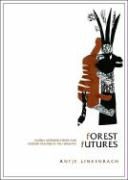Read more
Under their slogan, "Ecology is permanent economy," the Chipko Movement drew world attention to the struggle over forest rights. Taking its name from the Hindi word for embrace, villagers hugged trees and prevented contractors from felling them. Dedicated to the protection of forests, the movement spread throughout India in the 1970s, changing the countrys natural resource policy. "Forest Futures" argues that the hype took Chipko from its locale and took control away from local people. The portrayal of the Chipko movement largely ignored local histories of resistance, local conflicts and local forest practices. The book argues that the issues of forest control and sustainable forest use have to be seen in the context of concerns about social and economic development, regional autonomy, and the preferred futures of the local people.
List of contents
Acknowledgements Notes on transcription1. How to make one's interlocutors present? Approaching local perspectives on forest and ecology in Garhwal2. The region: A geographical and socio-historical sketch of Uttarakhand with special reference to Garhwal 3. Resisting commercial forest exploitation: A narrative approach to Chipko Andolan 4. Ecology and development: Two "powerful" narratives 5. Discourses on forest rights and forest use in Uttarakhand6. The interconnection between forest and life in a village of Rawain (western Garhwal): A case study 7. Conclusion: Lessons from Uttarakhand or the locals speak backBibliography MapsPhotographs
About the author
Antje Linkenbach, social anthropologist and sociologist, has taught at the universities of Heidelberg, Frankfurt, Tubingen, and Zurich.
Summary
The 'Chipko Movement' drew world attention to the struggle over forest rights. Arguing that the hype took control away from local people, this book says that issues of forest control and sustainable forest use have to be seen in the context of concerns about social and economic development, regional autonomy and the futures of the local people.

